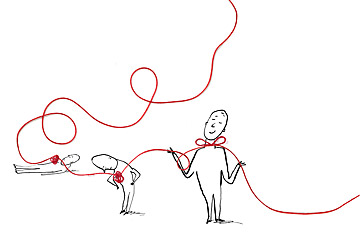
(2 of 7)
That's not to say all anxiety should be battled. Sometimes it should be embraced--even celebrated. In just the right amounts, the hormones that drive anxiety can be powerful stimulants, arousing the senses to function at their sharpest. Psychologists are familiar with a curve--which appears in most of their textbooks--that elegantly captures the relationship between stress and performance. It's a bell-shaped line that steadily climbs as the tension and worry that accompany a performance rise in lockstep with the quality of that performance. The peak of that arc--where the systems are clicking, the senses are alert and we recall with perfect clarity everything we've learned--is precisely where seasoned performers learn to hop off.
The key isn't not to feel anxious; it's to learn ways to manage that experience. "Anxiety itself is neither helpful nor hurtful," says ASDI's Winston. "It's your response to your anxiety that is helpful or hurtful."
Psychologists refer to this very straightforward idea as the difference between a challenge stress, which can light our competitive fire, and a threat stress, which can douse it fast. Most of the time, it feels as if our brain makes that choice by itself, without ever consulting us. What we want to learn--need to learn to stay calm and well--is how we can take charge.
The Balancing Act
For all the suffering anxiety causes, the fact is, the species would not be better off without it--and we might not be here at all. At its core, anxiety is a reaction, an arousal to a stimulus that we perceive as dangerous or threatening. The fabled saber-toothed tiger springs at the primitive human, and the human reacts with a biological red alert, bypassing the relatively time-consuming thinking centers in the brain in favor of a shortcut directly to the deeper-seated hypothalamus. This awakens the nervous system to release hormones that instantly rev up heart rate and respiration, feeding fresh blood and oxygen to the muscles, which need the boost to carry the human as quickly and as far away from the danger as possible.
Even the mere possibility that the tiger may be out there gets the system going, as the senses become more acute, picking up on every smell, every sound, every change in the air. It's a nifty response, one that produced a lot of people who would live to see another day and, more important, sire new generations of babies who would inherit their hair-trigger reflexes.
In fact, it's this dual face of anxiety that has made it such a permanent part of the evolutionary recipe for the human species. Richard Lewis, the famously neurotic comedian, delivers his stand-up without a fixed script--the comedic equivalent of driving with your eyes closed--yet surfs the performance curve deftly, insisting that he needs his anxiety to make it through his time onstage.
"Before I go on, I'm a nervous wreck," he says. "But ultimately I feel more comfortable being uncomfortable. I feel I'm a better artist without a set list, so I never had one and never will." The actress Sarah Bernhardt once told a young protge who claimed not to have stage fright, "Don't worry. It comes with talent."
